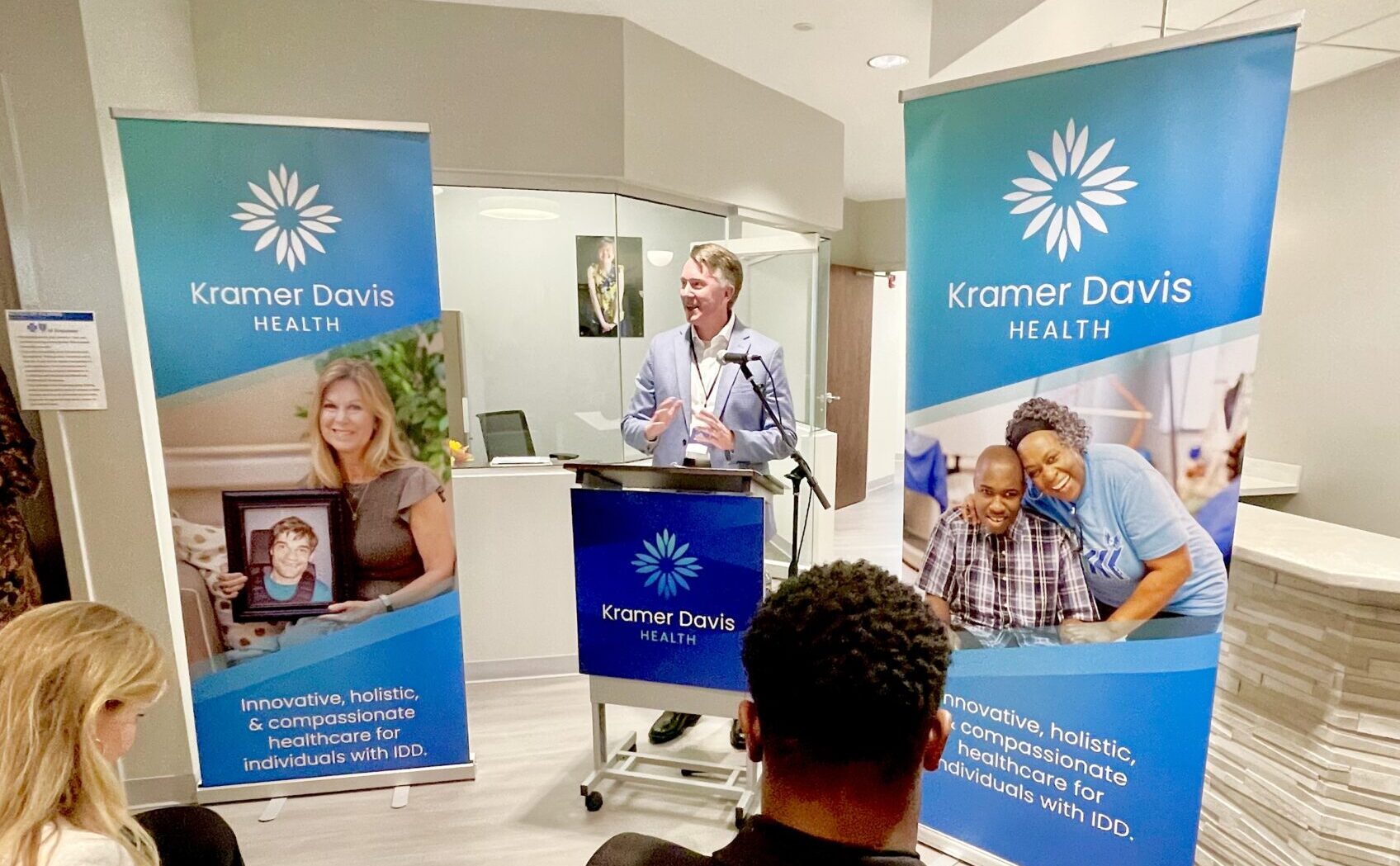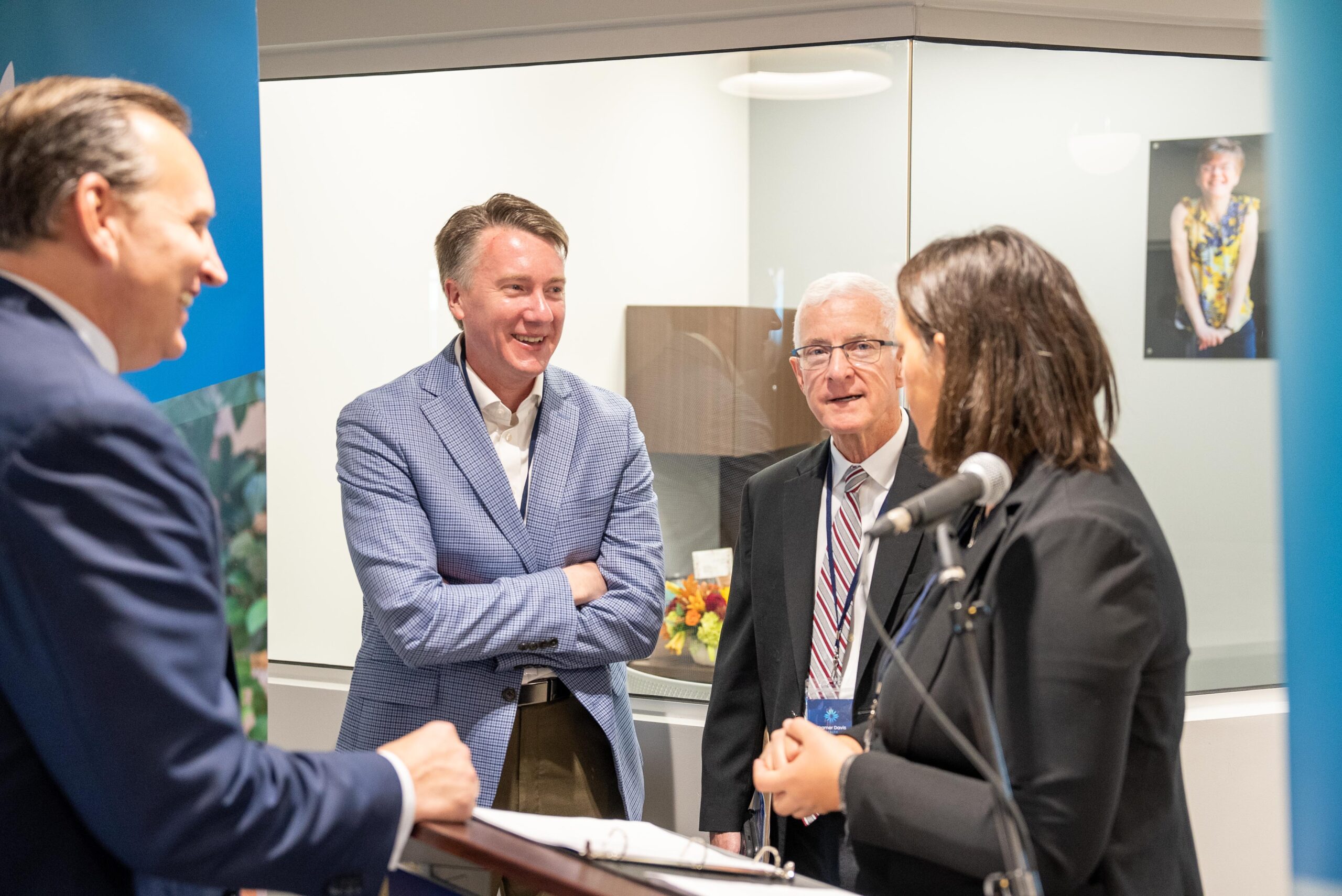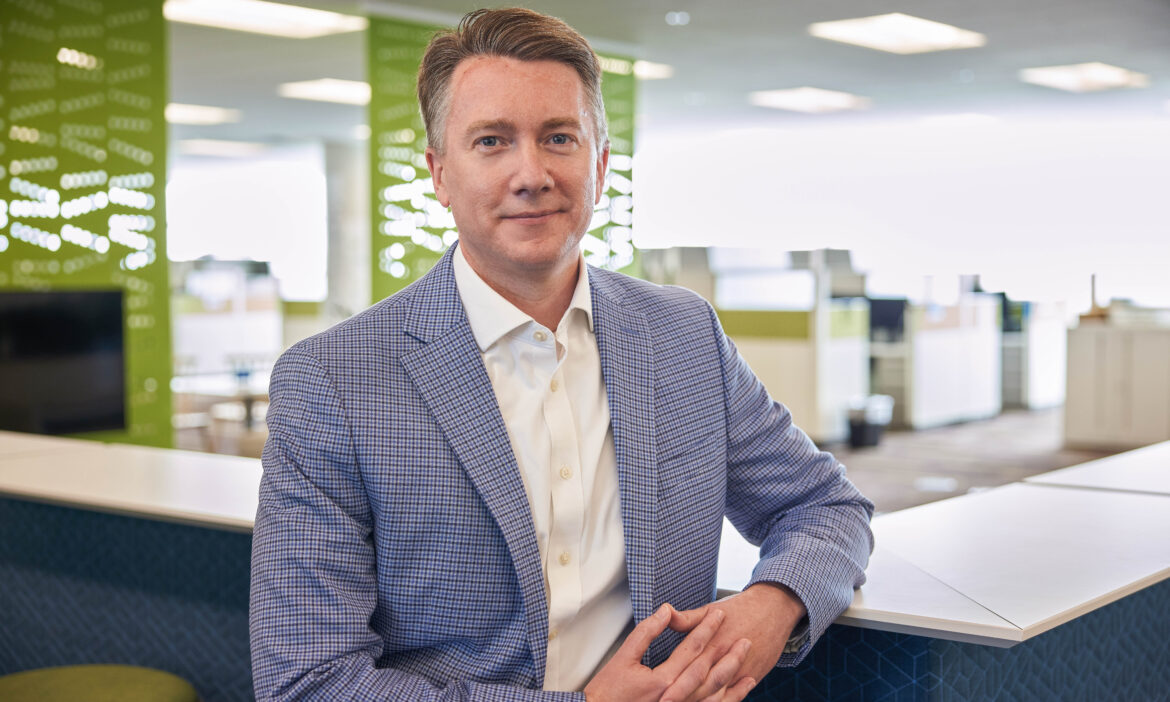The only time Casey takes a step back is when he reflects on the importance of this work and what it means for Tennesseans.
“You don’t have to work too long in BlueCare to connect with how important our work is and all the different levels and needs of people who require these services,” Casey says. “Once you make that connection, everything’s different. The stakes are higher in your mind.”
“You realize how many people are impacted by our programs, and that many need them from their very start in life.”
There were flickers of this connection before Casey, president and CEO of BlueCare Tennessee, the managed care organization (MCO) that partners with TennCare, the state’s Medicaid program, had embarked on his career. A Nashville native, he points to a months-long odd job during his college years that made a lasting impression.
“My dad was an accountant and I did some work for a company that installed elevators and staircase chair lifts in people’s homes,” Casey remembers. “At that time I was trying to find myself, so I took a job with this company. I put on a toolbelt, and I was semi-skilled at best. But through that work, I met so many people who relied on these resources for a better quality of life.”
The connection to the needs of others strengthened when Casey worked for TennCare. He’d earned a degree from Duke University and returned home to Nashville to start his career as a bill clerk in the Tennessee State Senate’s budget office. As part of that job, he shadowed legislative committees, an experience that led him to the public policy realm.
TennCare — which serves many different underprivileged communities with health challenges, whether it’s physical health, mental health, or both — was his true entry point for serving others.
A view from the inside
“Working with TennCare, you come to understand how many distinct, valid stakeholders there are,” Casey says. “You’re trying to manage those different voices with unique needs, including from the state’s fiscal perspective. It was a good stressful experience. I felt challenged all the time.”
But as he worked closely with MCOs across the state in his role, he saw BlueCare distinguish itself as an entity that was up to this challenge through the quality of its employees and their approach to service.
“Everybody can talk about the same issue, but BlueCare talks about it a bit deeper, whether it’s member experience or concerns over who gets impacted by the way a particular program is put forward,” Casey says.
“The member comes first at BlueCare. And back then I could just tell they were connecting with that population in a very authentic and meaningful way.”
For Casey, that kind of meaningful work goes hand in hand with forward movement. In January 2019, he joined BlueCare and moved to Chattanooga to take the role of vice president and chief financial officer to help address the challenges faced by the BlueCare population.
“It’s easy to compartmentalize and make all sorts of assumptions about this population,” Casey says. “But they’re all individuals with needs, hopes, dreams, fears, just like the rest of us. And we need to appreciate just how much these individuals rely on the services we offer. In many ways we’re a lifeline for folks who desperately need it.”
Partnering on behalf of adults with IDD
Casey’s passion and advocacy for this population was recognized in 2023 when he was promoted to BlueCare president and CEO. In his new role, he’s continued down his path of meaningful work — and one aspect of that is BlueCare’s partnership with Kramer Davis Health.

Kramer Davis is a Nashville-based organization dedicated to providing whole-person care for patients with intellectual and developmental disabilities (IDD). BlueCare and Kramer Davis saw the need for adults who had aged out of certain programs. In October, Kramer Davis opened their first clinic in Tennessee.
Patients can visit and receive preventive, dental, physical therapy, and mental health care, and see the same providers each time. This holistic approach helps patients and their families become comfortable with their surroundings and feel supported.
With that partnership in full swing, Casey’s now focused on building relationships with more provider practices and groups who understand the importance of Medicaid.
“We want to work with high-quality groups who understand the needs of the Medicaid population,” he says. “That means finding providers in all specialties who are the most attuned to connecting with these members, understanding them, and getting them engaged in activities that can raise their level of health.”

The importance of activity isn’t lost on Casey. Since he and his family moved to Chattanooga, they’ve embraced the outdoor opportunities the city offers, including its many scenic hikes.
“Our dogs keep us very busy,” he laughs.
Casey admits it took some time for his wife and daughters to familiarize themselves with the area, as they arrived at the onset of the pandemic. The family recently went through another major transition as his eldest daughter started college last year at the University of North Carolina at Chapel Hill.
“It’s the next stage of life,” the proud dad and half-empty-nester says. “Now I tell everyone to make sure and enjoy those moments when you’re still putting your little ones in the backseat.”
A meaningful look forward
Everything from embracing life’s little moments to partnerships with clinics and provider groups are key to BlueCare’s success in serving its members. But Casey’s quick to give credit where it’s due — to the boots-on-the-ground BlueCare employees.
“BlueCare wouldn’t run the way it does without our customer service teams, without our care coordination team, without our CHOICES care coordinators who go in the homes,” he says. “We have a lot of individuals in BlueCare who are directly interacting, whether by phone or in person, with our members. This work makes a tangible difference in people’s lives.”
For Casey, moving forward simply isn’t possible unless people understand the magnitude of their own meaningful work. And as a leader, he wants to celebrate it.
“I would tell anybody who works for BlueCare, ‘If you don’t think your work is making a difference, please come ask me,’” he says. “No matter the function or role in BlueCare, it’s a vital part of our work to promote quality access to health care for those individuals who can’t afford it.”


 Jesse joined the BlueCross BlueShield of Tennessee corporate communications team in 2017. A Chattanooga native, he has more than 15 years’ experience in content creation, management, and strategy for consumer audiences, including a six-year stint in health care marketing.
Jesse joined the BlueCross BlueShield of Tennessee corporate communications team in 2017. A Chattanooga native, he has more than 15 years’ experience in content creation, management, and strategy for consumer audiences, including a six-year stint in health care marketing.